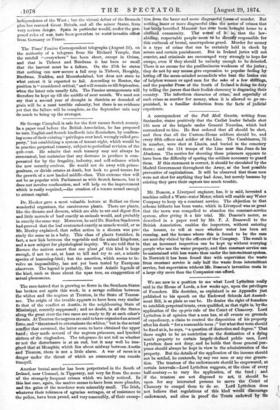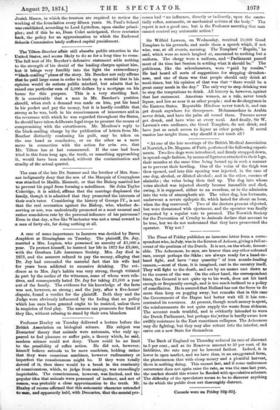We are now in a position to see what Lord
Lyttelton really said in the House of Lords, a few weeks ago, upon the privileges of Founders. His doctrine, as explained in an Appendix just published to his speech on the Endowed Schools Act Amend- ment Bill, is as plain as can be. He denies the right of founders to establish perpetual trusts, even qualified, as that right is, by the application of the cy-pres rule of the Court of Chancery. Lord Lyttelton is of opinion that a man has, at all events on grounds of expediency, a claim to control the disposition of his property after his death "for a reasonable term ;" but what that term should be fixed at is, he says, "a question of discretion and degree." That there ought to be no restriction on the destination of a dying man's property to certain largely-defined public uses, Lord Lyttelton does not deny, and he holds that these general pur- poses should always be kept in view in the administration of the property. But the details of the application of the income should not be settled, he contends, by any one man or any one genera- tion. The trustees of the endowments should be empowered, at certain intervals—Lord Lyttelton suggests, at the close of every half-century— to vary the application, of the fund ; and if the trustees are not disposed to act, it should be open for any interested persons to move the Court of Chancery to compel them to do so. Lord Lyttelton does not believe that regulations of this kind would discourage endowment, and cites in proof the Trusts endowed by Sir Josiah Mason, in which the trustees are required to review the working of the foundation every fifteen years. St. Paul's School was established, according to Lord Lyttelton, upon similar princi- ples; and if this be so, Dean Colet anticipated, three centuries back, the policy for an approximation to which the Endowed Schools Commission lately suffered capital punishment.































 Previous page
Previous page